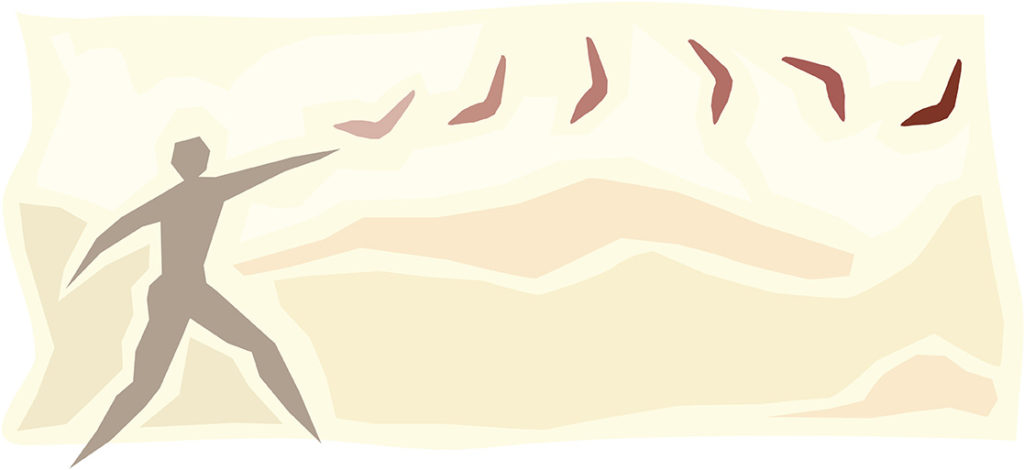by John Köehler
Publisher and author of seven books
_____
In my last post I posed the question, “Why do we write?” In that report I stated that we write to become part of history, to leave our mark behind, and to prove to the world that we matter.
Another reason we write is to become our best and rise to the highest attainable level of a craft we have taken on through practice and skill. This notion goes across all of the arts including painting, sculpture, dance, music, drama, video and more. In each field the artist must attempt to match their inspired artistry with mastery of their craft.
The same thing is true in sports.
In 1986 a friend took me to a boomerang tournament. I became infatuated with the sport, the beauty of the booms and the science of the aerodynamics. Soon I was completely hooked and dedicated myself to becoming the best boomerang thrower I could be.
Mastery of the craft of boomerang throwing included knowing how they worked. Understanding the mechanics of the chord, the lift and drag. Knowing how to make them hover or dive. I learned how to design and create my own boomerangs. I was the first competitor in the world to use three-bladed boomerangs in competition. I set a world record in the Endurance event in 1987.
I practiced constantly. I threw and caught. Threw and caught. It became automatic. I got on the US team and traveled around the world. Then I had a very good day in Perth Australia in 1991 and won the Boomerang World Championship. I had mastered my craft and knew what to do.
I had become my best.
The key application here for writers is practice. To master any craft you must do it over and over again. Henri Matisse said he did not do an original Matisse painting until he was 33. That did not mean he wasn’t working in his 20s. It meant that he had not yet mastered his craft, his art, and was still getting in the way. During that time when he was working to master his craft he studied other masters. Studying the masters helps us attain our own mastery.
To master writing is to simply do it, because you know what to do from constant practice. You do not have to overthink, or under think, because you have mastered your work. This is not an easy thing to do. You must recognize what works, and do more of that, and what does not work, and do less of that. You must constantly reflect and refine, and focus on getting better. Constantly better. Continuous incremental improvement, to borrow a corporate line.
It is natural for athletes and artists to compare themselves to other artists. This can be a very good thing if it inspires the artist to try something new and “try on” the style of the other artist. But it can be debilitating if the artist feels defeated by the perceived mastery of the other artist’s work. Do not fall into that trap. Study masterful writers. Learn how and why they are masters, and try it on for yourself. Your own mastery may ultimately be a tapestry of things you have learned from other writers.
Another principle in sports is working for your personal best. This means that instead of comparing yourself to another athlete, you work to improve your score, your output. You compete against yourself. This principal can apply to writers as well. If they have a clear goal for mastery of their craft, they can track their progress on their way to the goal. Becoming our best is something that all humans aspire to, and work towards. It requires dedication, devotion, and a whole lot of love.
Your best work may be better than some, or worst than others. In the end the most important thing is that you have worked and practiced and studied your craft in an attempt to master it. At the point of mastery you have then achieved your best potential, and that is a magical place to be.
Good luck.

